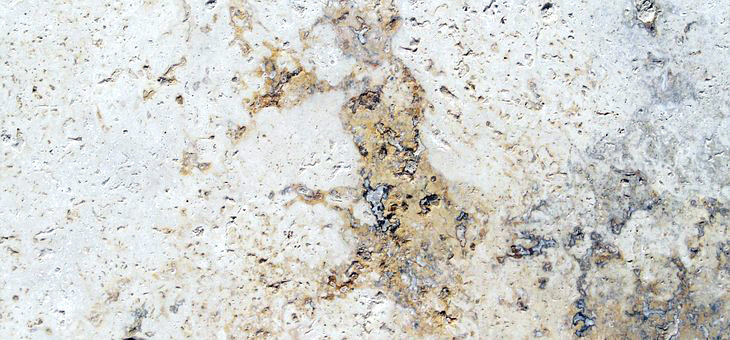Granite is a stone formed from fire and consists of quartz, feldspar and mica. This stone was once a molten flowing mass much like lava, and as it cooled down it became very dense and hard. In fact, granite is second only to diamonds in its hardness. Because it is resistant to blistering, scratching, cracking and scorching, granite is the number one choice in natural stone for kitchen, bath, and commercial countertops. Polished granite, with its high gloss, reflects light beautifully, adding elegance to any room or space. The high gloss finish will never wear off. Granite is easy to clean with just warm water and soft cloth. Granites are quarried throughout the world in the form of huge blocks and then reduced into slabs. These slabs are then carefully crafted and fabricated by a fabricator to the form you desire. Granites have different patterns or veining. Many stones rarely change in their tight quartz-like appearance, while others have veins that swirl and change irregularly. Small samples cannot give a good overall picture of a high-movement stone, it is this reason that we recommend to view the slab prior to the selection or fabrication.
Granites come from all over the world: India, Egypt, Spain, Brazil, Norway and Africa to name a few. Canada and the United States also produce some very lovely granite as well. Where the stone originates has a high impact on the cost of the stone because of transportation and labor. Red granites and blue granites tend to be priced a bit higher than the other colors because they are more rare.
GRANITE CHARACTERISTICS
Granite is an igneous rock formed by volcanic action and consists mainly of quartz, silica, mica obsidian and feldspar with a blend of other natural minerals. The composition varies from quarry to quarry. Granite is the only natural stone suitable for kitchen countertops. This relates to its hardness, resistance to scratches and its minimal absorption. It can also be used for fireplace surrounds and vanity tops. Below are some general physical characteristics, which also vary by stone type.
HARDNESS: Based on the MOH scale of one to ten with diamonds being ten ( 10 ), most granites fall within the range of seven ( 7 ) or eight. ( 8 ) It is extremely scratch resistant.. So, while a careless slip of the knife will scratch most other countertops such as solid surfaces, it won‘t leave a mark on Granite. Although Granite is durable it is not scratch-proof. But close.
NATURAL FISSURES: Granite contains natural fissures, which appear as cracks. These visible hairline cracks are formed during the solidification process. Earthquakes or land movement can also cause fissures. Fissures are random and will vary from one type of granite to the next.
SURFACE PITS: Granite is polished to remove all scratches from the surface. Due to the methods currently used for finishing – abrasives and pressure in a circular motion – some small crystals will be removed leaving small voids in the surface polish. The size and frequency of this varies from stone to stone. Usually, granite with more movement in the stone.
COLOR VARIATION: Samples represent the general color and pattern of a color of granite only. Exact duplication cannot and will not be guaranteed. This is why at Bay Area Stone & Tile we let you pick your own slab! Granite, being a natural product, will have variation in color and shading. This is a unique characteristic of natural stone and is to be expected.

